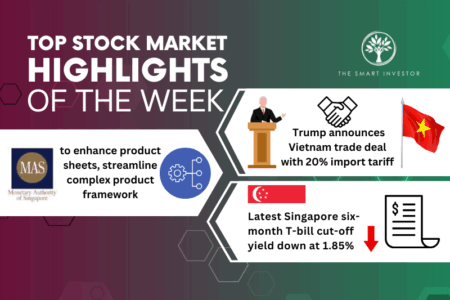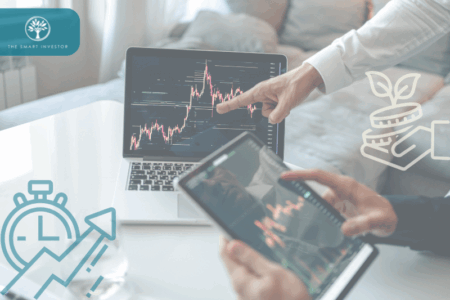The stock market has recovered but not every stock has returned to its previous highs.
A stock that is approaching its 52-week high is DBS Group Holdings Ltd (SGX: D05).
One year ago, DBS was trading around S$17.90 as the rapid spread of the coronavirus caused stock markets around the world to crash.
On 17 March 2021, DBS closed at S$28.02, for a gain of 56.5% within a year.
Investors who invested S$10,000 at close to its 52-week low would have seen their investment grow to S$15,650.
In addition to the capital gains, investors would also have received around S$385 in dividends.
Added to the current market value of the investment yields a total of around S$16,000 for a 60% total return on your original investment of S$10,000.
So, these are the gains that DBS Group has produced. But were they justified?
Let’s take a look back at 2020 and what has transpired since then.
A sharp increase in provisions
DBS’ first-quarter report card back in April 2020 gave an early hint of the turbulence that was to come.
The lender reported back then that total income rose 13% year on year and crossed four billion for the very first time.
However, general allowances of S$700 million had been taken as a precaution due to uncertainty stemming from the growing crisis.
This provision resulted in a 29% year on year decline in first-quarter net profit to S$1.17 billion.
CEO Piyush Gupta gave a frank assessment of the bank’s prospects back then.
A “stress scenario” would see economic activity in 2021 materially below 2019 levels, with the bank’s results comparable to the 2008-2009 global financial crisis period.
A growing sense of discomfort
By the time DBS reported its second-quarter earnings in August, the situation had grown far worse and many businesses were badly hit.
Total allowances set aside rose sharply by six-fold to S$1.9 billion for the first half of 2020, with net profit down 26% year on year.
Although allowances had surged, the CEO reported a stable credit outlook with negligible non-performing loan formation.
The bank had also maintained a general reserve allowance of S$3.8 billion, 24% above MAS’ requirements.
There were also clear signs that DBS was managing the crisis well.
Fee income, a type of non-interest income, improved as lockdowns eased, with wealth management investment income rebounding strongly to pre-pandemic levels.
Besides, marked-to-market gains in investment securities also helped to buffer the fall in net interest margins as global interest rates plunged.
Belief in the bank’s resilience
By the time DBS announced its third-quarter trading update in early November, it became clear that business momentum had improved.
A strong economic rebound was expected in Asia that should support both loan and fee income growth into 2021 for the bank, helping to offset the impact of lower net interest income.
Through these updates, investors could progressively build up a picture of how the bank was coping with this crisis.
DBS has been through multiple crises over its lifetime and thus had a much stronger chance of navigating the current one successfully.
Its blue-chip status also meant it had far better resources and was better capitalised than smaller businesses, thus providing it with the resilience to weather the storm.
As such, investors should feel comfortable owning shares of DBS and should even consider adding to their position as valuations remained low during the crisis.
Get Smart: The stunning verdict
At times, it’s good to take a step back to assess your investment decisions.
By doing such an analysis, you can learn from any mistakes we have made and improve your investment process.
At the same time, this exercise can help to reinforce savvy investment decisions and help us to become better investors.
One question that always crops up is how we react during crises.
There were many scares along the way that could have caused investors to panic and bail.
But if you had faith in the DBS’ track record of handling crises and its strong balance sheet and held on to your shares, you would be handsomely rewarded.
10 Growth Stocks To Supercharge Your Portfolio! In our latest special FREE report, we cover 3 unstoppable growth trends and the 10 stocks that will ride them in 2021 and beyond! CLICK HERE to download now!
Follow us on Facebook and Telegram for the latest investing news and analyses!
Disclaimer: Royston Yang owns shares in DBS Group Holdings Ltd.




